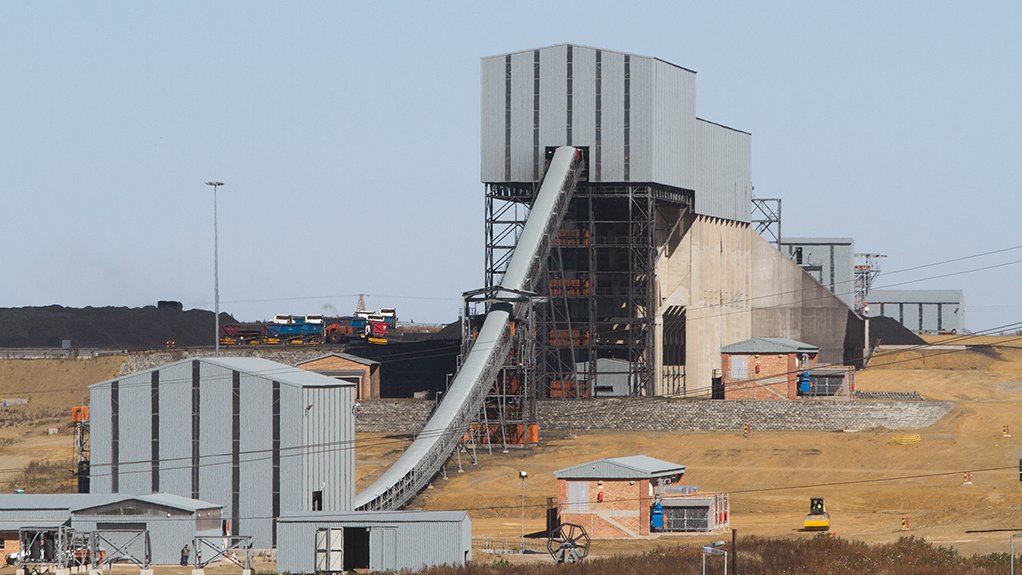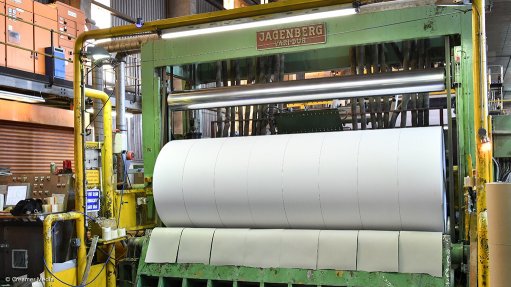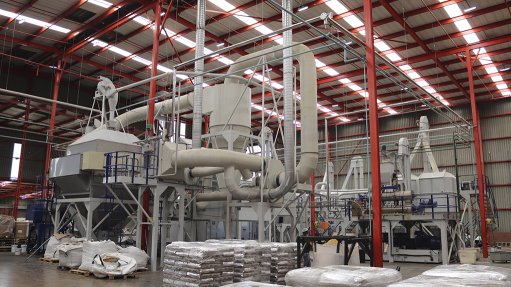Early signs of sustainable improvements across collieries


ROLL-OUT IMPROVEMENT The learnings from the first phase of the mining ‘full potential’ programme will be embedded in the roll out of the Shondoni and Thubelisha collieries in the months to come.
Photo by Sasol
Global chemicals and energy company Sasol president and CEO Fleetwood Grobler, speaking at Sasol’s annual financial results presentation held on August 23, 2023, noted that its ‘full potential’ programme for its mining operations is moving forward into its second phase.
According to Grobler the full potential programme was designed to provide sustainable improvements across all of Sasol’s collieries and has begun to deliver early gains. The programme encompasses “complex-wide initiatives to improve cutting time, reduce production losses and evaluate operational factors to improve coal quality”.
He explained that a pivotal focus of Sasol’s endeavours in the second half of the year under review was the improvement in the quality and productivity of coal supply at its Secunda operations.
The programme started in January 2023 with the first colliery being Syferfontein. There has been a visible improvement in the colliery’s production over the last six months, with the operation continuing to build on this momentum.
He explained that the learnings from this phase will be embedded in the roll-out at the Shondoni and Thubelisha collieries in the coming months.
“We have successfully maintained the coal stockpile within the targeted levels at two-million tons, through the increase in production and a successful coal purchasing strategy,” said Grobler.
He added that Sasol is processing several levers to improve productivity and quality of the coal over the short to medium term. This includes mechanical interventions for roof control, and improved coal blending to minimise the variation of coal quality provided the Secunda facility, among others.
He further noted that, collectively, these shorter-term levers are all necessary in unlocking higher production output from the Secunda operations, which is what Sasol has built into its financial plan for the year 2024.
“We still need to implement the medium- to longer-term levers [. . .] to restore production back to historic levels with the inclusion of the completion of the full potential programme roll-out,” Grobler reiterated.
He elaborated, noting that included in these levers is the employment of a destoning technology to remove sinks from the coal and the unlocking of additional reserves to replace the existing Isibonelo supply, which is coming to an end.
Further, Sasol conducted a successful destoning test using its own coal, which concluded in March 2023. Grobler explained that the results were promising, with Sasol aiming to make a final investment decision for its own destoning facility during the 2024 financial year.
He noted that appointing focused executive leadership positions for mining was the right thing to do, and Sasol was seeing the benefits in terms of operational learnings and a much higher level of transparency.
Grobler announced that with the imminent retirement of Riaan Rademan as executive VP for mining, he is “pleased to confirm that his successor is Hermann Wenhold, our current senior VP for mining”.
He explained that Wenhold’s successor is also an internal candidate, Sandile Siyaya, who is currently on the mining executive committee, and that both of these appointments are effective as of November 1, 2023, ensuring leadership continuity in the mining operations, which is key to the ongoing delivery of Sasol’s initiatives.
Financial Performance
As reported by Reuters on August 23, Sasol posted a 13% rise in yearly profit as better operations in the second half offset the impact of weaker crude prices.
The company said its headline earnings a share was 53.75c for the 12 months ended June 30, up from 47.58c a year ago.
Its basic earnings a share, meanwhile, was down by over three-quarters, owing to a “huge impairment” at its flagship plant, with Sasol announcing a R35-billion impairment charge at its Secunda facility, which it attributed to higher interest rates and emission reduction costs.
This impairment comes amid the company’s efforts to become more environment-friendly and reduce its carbon footprint to meet its 2050 net-zero commitment.
Grobler during the results presentation noted that, while Sasol had benefited from an elevated oil price and a weaker Rand/Dollar exchange rate, it continued to face “macro challenges with headwinds on demand and pricing, particularly in the chemicals [segment], alongside persistent inflation with elevated feedstock and energy costs”.
He added that the company was also experiencing specific challenges in its operating environment, and specifically in South Africa, where its operations had been adversely impacted by the performance of State-owned enterprises.
Article Enquiry
Email Article
Save Article
Feedback
To advertise email advertising@creamermedia.co.za or click here
Comments
Press Office
Announcements
What's On
Subscribe to improve your user experience...
Option 1 (equivalent of R125 a month):
Receive a weekly copy of Creamer Media's Engineering News & Mining Weekly magazine
(print copy for those in South Africa and e-magazine for those outside of South Africa)
Receive daily email newsletters
Access to full search results
Access archive of magazine back copies
Access to Projects in Progress
Access to ONE Research Report of your choice in PDF format
Option 2 (equivalent of R375 a month):
All benefits from Option 1
PLUS
Access to Creamer Media's Research Channel Africa for ALL Research Reports, in PDF format, on various industrial and mining sectors
including Electricity; Water; Energy Transition; Hydrogen; Roads, Rail and Ports; Coal; Gold; Platinum; Battery Metals; etc.
Already a subscriber?
Forgotten your password?
Receive weekly copy of Creamer Media's Engineering News & Mining Weekly magazine (print copy for those in South Africa and e-magazine for those outside of South Africa)
➕
Recieve daily email newsletters
➕
Access to full search results
➕
Access archive of magazine back copies
➕
Access to Projects in Progress
➕
Access to ONE Research Report of your choice in PDF format
RESEARCH CHANNEL AFRICA
R4500 (equivalent of R375 a month)
SUBSCRIBEAll benefits from Option 1
➕
Access to Creamer Media's Research Channel Africa for ALL Research Reports on various industrial and mining sectors, in PDF format, including on:
Electricity
➕
Water
➕
Energy Transition
➕
Hydrogen
➕
Roads, Rail and Ports
➕
Coal
➕
Gold
➕
Platinum
➕
Battery Metals
➕
etc.
Receive all benefits from Option 1 or Option 2 delivered to numerous people at your company
➕
Multiple User names and Passwords for simultaneous log-ins
➕
Intranet integration access to all in your organisation



















